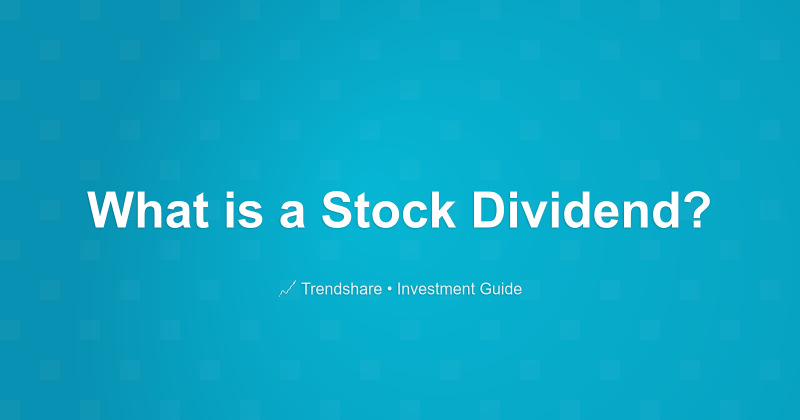
What is a Stock Dividend?
By Ethan Mercer
Financial Technology Analyst • 10+ years in fintech and payments
What is a stock dividend? Learn how a dividend paid out in fractional shares is different from the cash dividend you're used to.
When a company makes money, sometimes it pays the owners of the company (the shareholders) a little bit of money for each piece of the company they own. That's a regular dividend. Not all companies pay dividends, but many companies do.
A company that does pay dividends is most likely a company making money. Maybe it's not making huge amounts of money year after year, but good companies which pay regular dividends are good companies to own.
What is a Stock Dividend?
Sometimes a company pays a dividend not in cash but in additional shares of the company—additional shares of stock. This is a stock dividend.
Suppose you own 100 shares of Acme Lemonade Stands. The company had a good year and earned a lot of money. The company wants to pay its owners—its shareholders—some of that money. Normally you might think the company would pay a small amount of money to each shareholder for each share of the company they own. If they pay $1 per share, you get $100. (See What is Dividend Yield?)
If the company instead decides to pay a stock dividend, you'll get an extra fraction of a share for each share you own. For example, if they give 5% of a share for every share you own, you'll get 5 extra shares and will subsequently own 105 shares.
If this sounds like a stock split to you, you're right. They're very similar.
Why Would a Company Pay a Stock Dividend?
Why would Acme Lemonade Stands pay a stock dividend instead of a cash dividend? There are a few reasons. The most obvious is that the company may not have the liquid cash available to pay a dividend. (In that case, why pay a dividend? Not everything makes sense.)
As a benefit to shareholders, they generally do not have to pay taxes on a stock dividend, where they do on a cash dividend—at least until they sell them.
While issuing new stock for a dividend may dilute the value of existing stock, increasing the pool of available stocks (as with a stock split) may increase the liquidity of the stock, thus potentially improving its price. Furthermore, some of the accounting practices required to pay a stock dividend may end up increasing the market capitalization of the company.
Even though it may seem like the relative value of each share will decrease (because there are more shares available),the increase in market capitalization should offset any dilution. In other words, people expect the price of the stock to stay about the same after the stock dividend.
Is a Stock Dividend Better than a Cash Dividend?
Some people prefer stock dividends because they offer investors more options: you can keep the stock or sell it for cash. In practice, it's probably a wash. Whether you prefer a cash dividend to a stock dividend is up to you. The tax consequences of a stock dividend may be more attractive, but you don't have to do anything to realize the value of a cash dividend. You can, of course, reinvest a cash dividend back into the company, but you could also immediately sell the new shares granted to you by the stock dividend.
Stock dividends are rarer than cash dividends (possibly because they require more accounting), but in either case, a company making enough money to return some of it to its shareholders is doing well. You're fortunate to own such a great company—especially if you bought it at a great price!
Investment Disclaimer
This article is for educational purposes only and does not constitute investment advice. Stock prices, financial metrics, and market conditions change constantly. Company examples are provided for illustration and should not be considered recommendations. Always verify current data from official sources such as company investor relations pages or SEC filings, assess your own risk tolerance and investment objectives, and consult a qualified financial advisor before making investment decisions. Past performance does not guarantee future results.